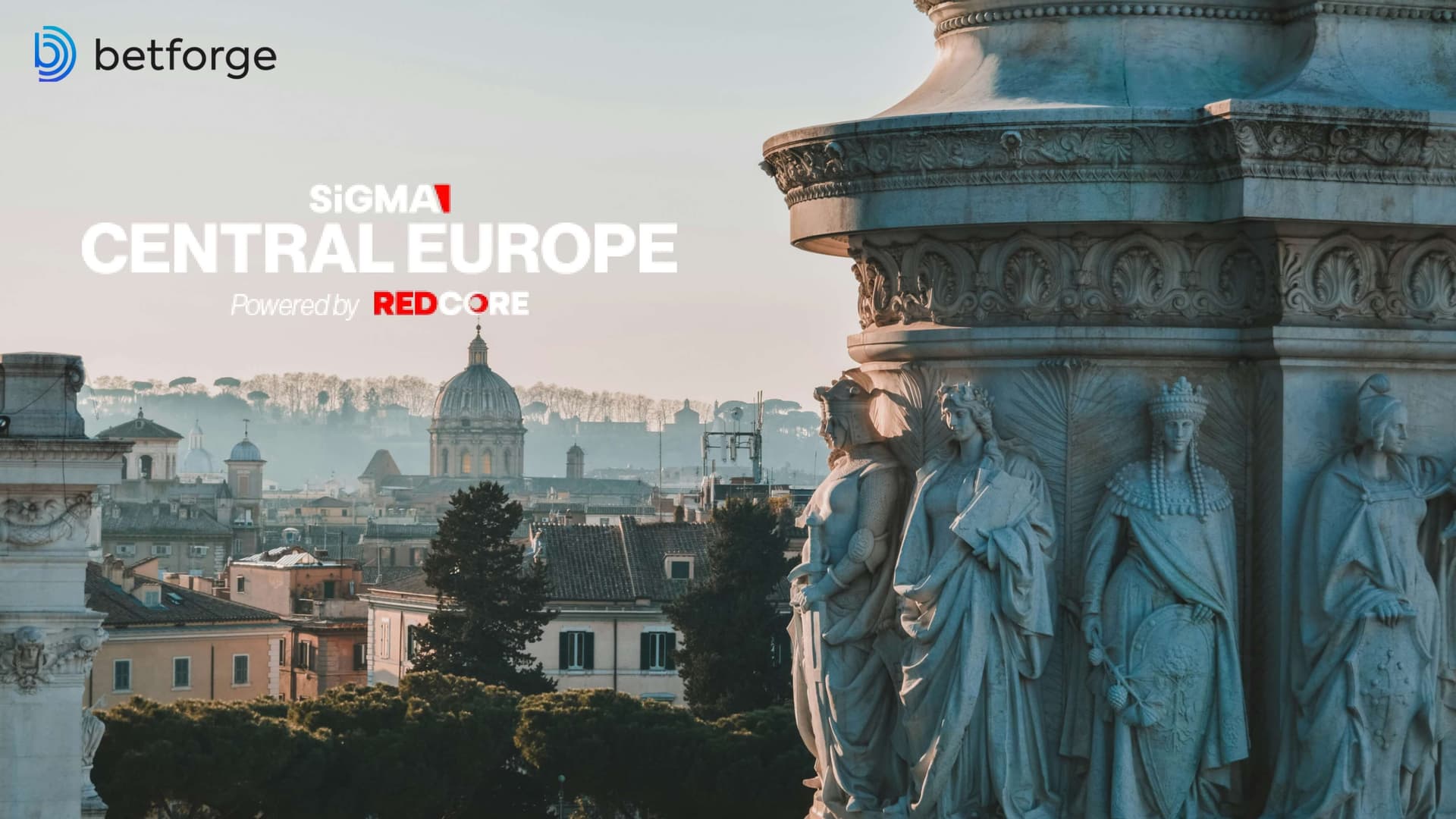2025 iGaming Boom: What the Numbers Tell Us
Online gambling is no longer a niche. Industry estimates peg the global online gambling market at around $117.5 billion by the end of 2025, and digital wagering has become a mainstream form of entertainment. Growth is not limited to Europe. The industry is projected to continue expanding rapidly over the coming decade. In the United States, online casinos are legal in only a handful of states, yet they generate significant revenue and continue to attract new players. Market liberalisation, improved internet infrastructure and mobile penetration continue to draw new audiences online.
Against this backdrop of rising numbers and accelerating legalization, operators planning to launch or expand their brands must decide how to enter the market. Two approaches dominate: turnkey and white‑label solutions. Each offers a different balance of cost, control and speed. Understanding those differences and their alignment with 2025 market dynamics is essential for choosing the right path.
Turnkey Casinos Uncovered: Your Full Toolkit
A turnkey casino solution provides a complete technology stack ready for deployment. According to Turbomates Soft, a standard turnkey package includes the game server, a large library of slots and table games, payment gateways, back‑office management tools and support for licensing and compliance.
Operators receive a foundation on which they can build a unique brand and experience.
Core Components of a Turnkey Platform
Software and content: The engine powering games and the integration of thousands of slots, table games and live dealers. Operators choose titles from multiple providers to cater to specific markets.
Payments and security: Built‑in support for a variety of payment methods—from cards and e‑wallets to cryptocurrency—alongside fraud prevention and anti‑money‑laundering measures.
Compliance support: While the licence itself must still be secured by the operator, turnkey vendors often provide guidance on jurisdictional requirements and documentation.
Back‑office tools: Centralised dashboards for managing players, promotions, loyalty schemes and responsible‑gaming features. Advanced analytics track gross gaming revenue (GGR), active players and bet volumes in real time.
Technical management: Hosting, updates and security patches are handled by the vendor, freeing operators to focus on product and marketing.
Why Turnkey? Advantages You Can’t Ignore
Customisation and differentiation: Turnkey solutions give operators the freedom to design their own user interface, create bespoke promotions and integrate exclusive content. The ability to choose game providers, payment methods and bonus logic results in a distinct player experience—an important advantage in markets where multiple brands compete for the same audience.
Ownership and data control: With a turnkey platform, operators own their domain, customer data and platform technology. They are free to negotiate payment terms, integrate third‑party services and expand to new verticals without seeking provider approval.
Scalable growth: Turnkey architecture is designed for expansion. Operators can add sports betting, bingo or other verticals and enter new markets by adapting the platform to different regulatory frameworks. Because the software belongs to the operator, there is no dependence on a single vendor’s business strategy.
Long‑term asset value: Developing a proprietary platform transforms the business into a more valuable asset. Investors and partners often place higher valuations on companies that control their technology and data.
The Turnkey Trade‑Offs: Costs & Caveats
Turnkey projects were once seen as more capital‑intensive than white‑label models—but that’s no longer the case. BetForge combines the flexibility of turnkey solutions with the speed and affordability typical of white‑label, offering better terms than most competitors. With a modular platform, transparent pricing, and no hidden fees, operators gain full control over the product and keep more revenue.
Launch timelines rival white‑label setups thanks to pre‑built integrations. You decide what features to roll out and when—no vendor delays, no rigid roadmaps. The result: a faster go‑to‑market, lower total cost, and long‑term control over your brand.
White‑Label Casinos Unboxed: What’s Included
A white‑label solution uses the provider’s software and gaming licence. These packages include a ready‑built platform complete with games, payment processing and player support. The operator adds branding, focuses on marketing and pays a share of revenue or a fixed fee to the provider.
Key Components of a White‑Label Platform
Platform and games: The core software, user interface and game catalogue are the same for every client. Operators cannot modify mechanics or add unique features beyond colour schemes and logos.
Licensing: Operators operate under the provider’s licence, bypassing the lengthy approval process of some jurisdictions. This is attractive in markets where licensing is expensive or uncertain.
Revenue sharing: Operators pay a percentage of GGR or net gaming revenue (NGR) to the provider. Some providers also hold a rolling reserve to cover potential player payouts or compliance fines.
Technical and customer support: Providers can assist with hosting, payment processing, updates, and player support, allowing operators to concentrate on marketing and acquisition.
When White‑Label Fits: Pros and Use Cases
Speed to market: A white‑label casino can launch in weeks. This quick entry allows brands to test marketing strategies or run limited campaigns without committing significant capital.
Low financial barrier: Up‑front costs are modest because there is no custom software development or licensing fee. This model suits affiliates, media companies or entrepreneurs who want to add a gaming vertical to an existing brand.
Operational simplicity: Technical tasks, compliance and player support are outsourced. Operators concentrate on customer acquisition and retention.
White‑Label Pitfalls: Hidden Costs and Limits
White‑label clients trade control for convenience. They cannot alter game selection or underlying features, limiting differentiation. Revenue is shared with the provider, and access to raw customer data is restricted. Expansion to new markets depends on the provider’s licence, and switching to another vendor can be disruptive.
Turnkey vs White‑Label: Feature Showdown
| Dimension | White-Label | Turnkey |
|---|---|---|
| Platform ownership | Provider owns technology and licence; operator manages branding. | Operator owns platform, data and brand. |
| Customisation | Limited to superficial design changes. | Extensive; design, games, payments and features can be customised. |
| Licensing | Covered by provider. | Operator secures licence, with vendor advice. |
| Deployment timeframe | Weeks. | Months (a matter of weeks with BetForge). |
| Cost structure | Low up-front cost; ongoing revenue share and reserve. | Low up-front cost (a matter of weeks with BetForge). |
| Operational load | Technical and regulatory tasks handled by provider. | Operator manages operations or outsources selectively. |
| Scalability | Constrained by provider’s licence and technology. | High; operator expands to new markets and verticals freely. |
Making the Call in 2025: Turnkey or White‑Label?
The statistics for 2025 illustrate that online gambling is both lucrative and competitive. Europe remains the largest market, while the U.S. continues to show strong revenue growth driven by expanding regulation.
Latin America is emerging as a dynamic region, led by Brazil’s rapid market development. Asia-Pacific holds the largest market share globally, though growth rates differ across jurisdictions. These trends, combined with projections that the global market will nearly double by 2033, suggest that entering the space sooner rather than later is advantageous.
Choosing a platform model depends on your goals:
Experimenting or launching a side brand: White‑label is ideal for businesses that want to test a market quickly, run short‑term campaigns or complement an existing media or affiliate presence. The low barrier and short launch window reduce risk.
Building a standalone brand: Turnkey suits operators who intend to create a distinctive product, control data and expand across jurisdictions. The investment pays off through higher margins and the ability to adapt the product as regulations and customer preferences evolve.
In 2025, as mobile devices account for the majority of online gambling interactions, the ability to deliver a mobile‑friendly experience matters. Operators should also consider compliance trends; multi‑jurisdictional licensing and stricter anti‑money‑laundering standards require robust back‑office tools and experienced legal guidance.
Why BetForge? The Edge You Need
BetForge is a turnkey casino platform designed by Turbomates Soft. It merges the advantages of a custom solution with the speed traditionally associated with white‑label projects. Operators can launch a branded casino within weeks while retaining control over design, content and data.
What Makes BetForge Stand Out
Extensive game and product offering: BetForge integrates a vast library of games from leading providers and supports multiple verticals—casino, sports betting and a betting exchange. Operators can select the mix that fits their target market.
Flexible payments: The platform offers numerous payment methods, including cards, e‑wallets and cryptocurrencies, ensuring coverage across regions. Operators can add or remove methods based on local preferences.
Real‑time analytics: BetForge’s dashboard delivers insights on GGR, active players and player lifecycles, enabling informed marketing and retention strategies. Operators own the data and can connect it to their CRM systems.
Compliance support: BetForge assists with licensing in jurisdictions such as Curaçao, Malta, the UK, Gibraltar, Isle of Man, Kahnawake, Anjouan and Tobique, guiding operators through documentation and ongoing reporting. Built‑in tools help manage responsible‑gambling measures and AML checks.
24/7 technical support: Dedicated teams handle server maintenance, security patches and feature updates, allowing operators to focus on growth.
Competitive revenue terms: BetForge offers some of the most favorable conditions in the turnkey segment, combining the key advantages of white‑label models with greater flexibility and long‑term value. Our streamlined revenue share is lower than industry averages, allowing operators to retain more profit while benefiting from ongoing development, support, and full product control.
Why BetForge Wins in 2025’s Market
The rapid expansion of the online gambling market places a premium on speed and differentiation. Many brands lose momentum when they spend months building custom platforms or rely on inflexible white‑label solutions. BetForge offers a middle ground: customised branding, game selection and payment options delivered in a timeframe comparable to white‑label. That combination helps operators capitalise on market trends highlighted earlier—the strong European market share, the projected global growth to $198 billion and the surge in U.S. revenue.
By retaining control of the platform and data, BetForge operators can integrate third‑party tools, craft loyalty programs and adapt to regulatory changes without waiting for a vendor’s roadmap. The low revenue‑share model keeps margins high, and the large game portfolio ensures broad appeal in multiple regions. For companies evaluating their options in 2025, BetForge provides a turnkey solution aligned with current market conditions and the desire for quick yet flexible deployment.
From White‑Label to Turnkey: A Journey
Many successful casino brands start with a white‑label solution to validate their concept and build an audience. This approach allows them to enter the market quickly, collect data on player preferences and refine their brand message without committing large sums. Once the brand achieves traction and consistent revenue, a migration to a turnkey platform can unlock greater flexibility and profitability. The migration process involves replicating the user experience, transferring player accounts and balances, integrating bespoke payment methods and ensuring regulatory continuity.
A typical migration begins with a parallel run: the operator commissions a turnkey platform while maintaining the existing white‑label site. User interface designers recreate the look and feel of the original brand, often enhancing it with new features and mobile optimisations. Backend engineers import player databases, loyalty points and transaction histories, ensuring that the transition is seamless from the customer’s perspective. Marketing teams communicate the upcoming change and may offer incentives to encourage players to log in to the new site.
Once the turnkey platform is live, the operator gradually redirects traffic, monitors performance and resolves issues. Because the business now owns the technology, it can add exclusive games, integrate region‑specific payment options and experiment with innovative promotions. The migration from white‑label to turnkey thus becomes a strategic pivot from testing to long‑term growth.
Choosing a Platform Provider: Checklist & Tips
Choosing the right platform partner is a critical decision that affects every aspect of the business. Operators should evaluate providers on multiple dimensions. Reliability refers to uptime guarantees, load‑balancing infrastructure and disaster‑recovery plans; downtime directly translates into lost revenue and player dissatisfaction. The game library should include titles from reputable studios and support multiple verticals—slots, table games, live casino and sports betting—to appeal to diverse audiences. Payment processing requires support for local currencies, low transaction fees and protection against fraud. Integrated wallets that handle both casino and sportsbook balances improve the player experience.
Compliance and security are non‑negotiable. Providers must demonstrate that their software meets the technical standards of the jurisdictions they target and that they follow best practices for data protection. Support and account management are equally important; responsive technical teams, proactive account managers and detailed reporting dashboards empower operators to make informed decisions. Customisation capabilities determine how much the brand can differentiate itself; some vendors offer drag‑and‑drop page builders, while others require coding expertise.
Finally, consider the provider’s roadmap and financial stability. A partner investing in new technologies—such as blockchain‑based provably fair games, augmented‑reality experiences or adaptive bonus engines—signals a commitment to innovation. Transparent pricing, clear service‑level agreements and flexible contract terms reduce the risk of unpleasant surprises. By comparing options across these criteria, operators can select a platform that aligns with their ambitions and ensures that their brand evolves with the industry.
Planning Your Next Moves
Online gambling’s growth trajectory shows no sign of slowing. Analysts agree that the industry is expanding rapidly and is expected to continue growing over the coming years. Operators entering or expanding within this sector need to align their platform choice with their business goals. White‑label solutions offer rapid entry and low costs but limit control and margin. Turnkey solutions demand greater investment but deliver customisation, ownership and scalability.
Platforms like BetForge show that turnkey can be both fast and flexible. With thousands of games, extensive payment options, comprehensive analytics and licensing support, BetForge lets brands launch quickly and build lasting value. In a market defined by mobile access, regional regulation and intense competition, having the right platform is the difference between a fleeting experiment and a sustainable business.
Launch Smarter with BetForge: Get Started
BetForge doesn’t just deliver a casino platform; it combines speed, affordability and customization in a single package. Our offering includes:
Cost‑effective set up: A comprehensive solution at a price point competitive even with many white‑label deals.
Low revenue share: BetForge takes only a small share of monthly revenue, leaving the majority of profits to you.
Rapid, customisable deployment: Launch a fully branded casino within weeks without sacrificing design or functionality.
Dedicated support and guidance: From licensing and payment integration to ongoing maintenance, our team provides 24/7 assistance.






